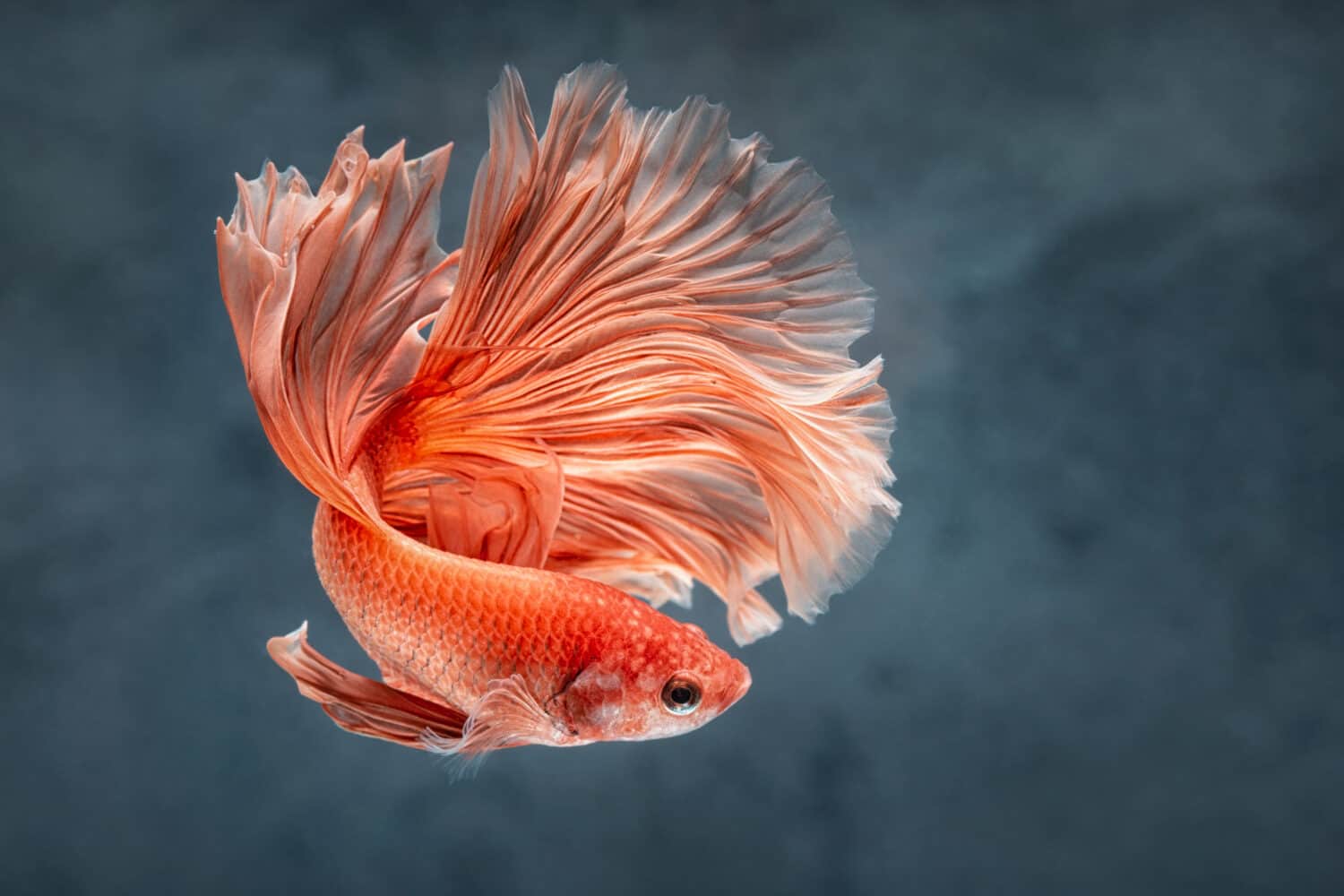Many pet stores in America have betta fish in tanks; they’re one of the most popular pet fish genera. Did you know that over 70 species of betta fish exist? Usually, kids and pet store customers purchase Betta splendens, which can live in captivity for up to five years.
Bettas are hardy fish. Still, they can develop serious health issues, like vertical death hang. AZ Animals interviewed two animal experts to gain additional insight into what owners should know about vertical death hang in betta fish.
What Is Vertical Death Hang in Betta Fish?
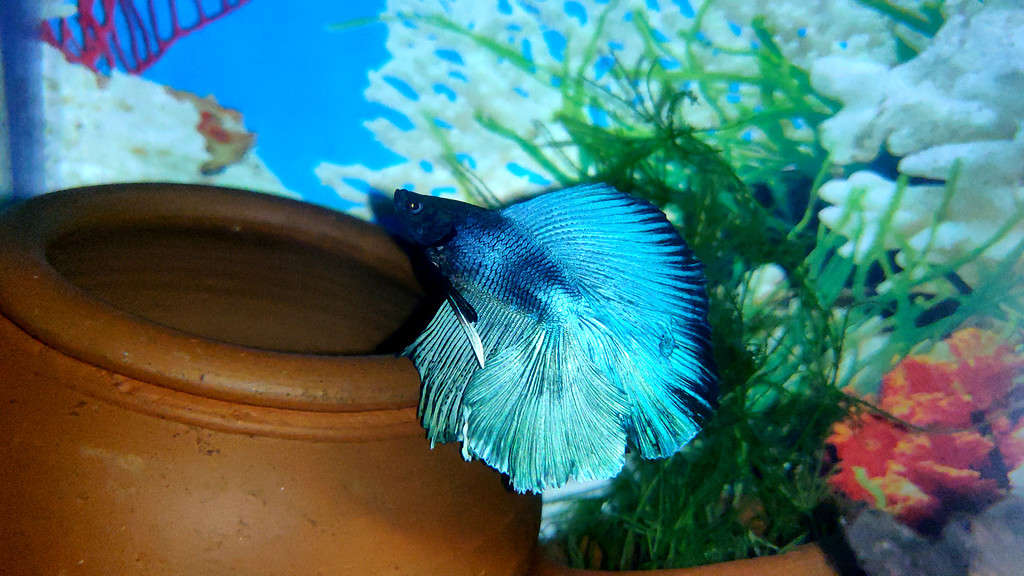
Betta fish need specific environmental parameters to maintain their health.
©iStock.com/Saurabhkumar Singh
When your betta fish begins to swim vertically, something’s wrong.
Dr. Mollie Newton of PetMeTwice shared that an odd vertical swimming pattern in betta fish is cause for concern when noticed.
“Vertical death hang, also known as vertical stress stripes or VSH, is a concerning condition in betta fish. VSH is characterized by a betta fish hanging vertically in the water, with their head pointed downward and their tail up. This unusual posture is often a sign of severe stress or illness in bettas.”
Not all betta fish hang downward. Some will hang with their mouths touching the surface of the water in their tanks.
Betta fish use their swim bladders to control their buoyancy and stay in a neutral position without the need for constant swimming. When something attacks or infects the swim bladder, a betta fish’s one way to stay afloat begins to crumble.
Swim Bladder Disease has several causes. Your betta fish may be constipated or have had a rough travel journey. Or, it could have an internal parasite or bacterial infection.
What Causes Vertical Death Hang in Betta Fish?
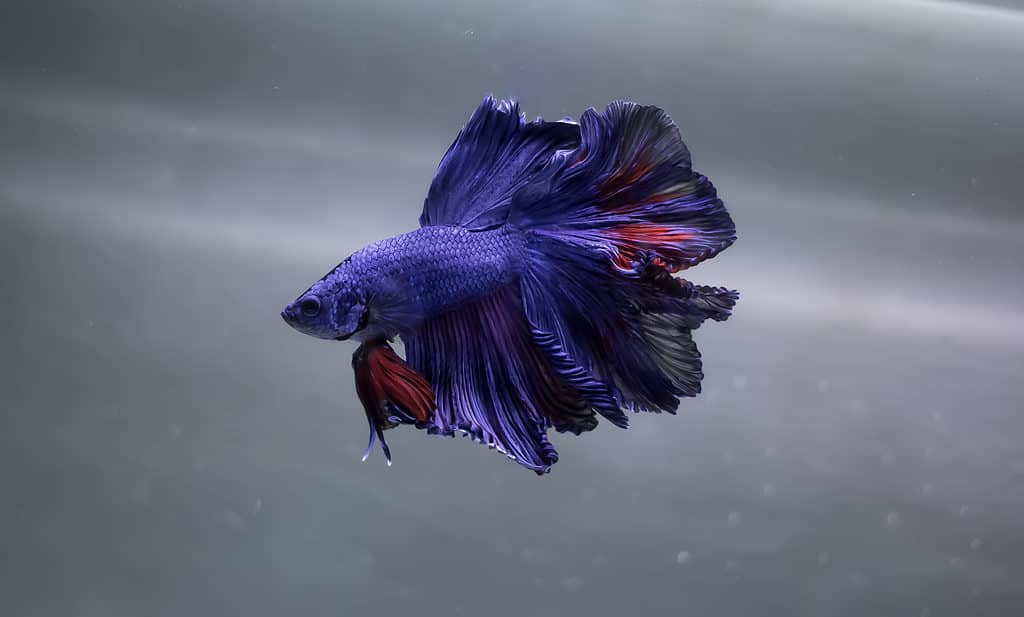
If your betta fish swims vertically for any amount of time, there may be a cause for concern.
©oddi chandra pratama/Shutterstock.com
Vertical death hang in betta fish may be difficult to notice at first if you’re not always home or next to your betta fish’s tank. The acute onset of the illness may cause your betta to hang vertically for a few minutes or hours and suddenly go back to normal.
This does not mean they’re “fixed.”
The longer you let your betta’s vertical hang happen without intervention, the worse the condition will get. Dr. Newton asserted, “Timely intervention, along with a well-maintained aquarium environment, can improve your betta’s well-being and prevent vertical death hang.”
Causes of vertical death hang in betta fish vary. They can include the pH of the water, the diet you’re feeding your betta, injury to or disease in their swim bladder, and more.
4 Critical Things to Know About Vertical Death Hang in Betta Fish
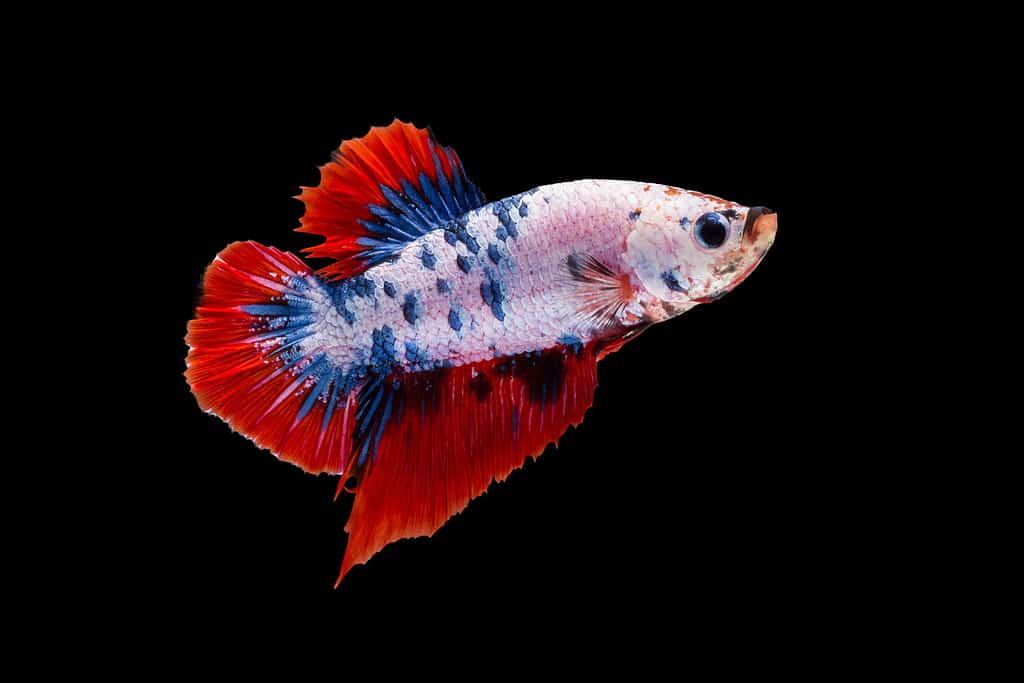
Betta fish use their swim bladders to regulate how they swim in the tank. If something’s wrong with it, they may “hang” vertically.
©pritsana/Shutterstock.com
According to Augustinas Maciulis, the co-owner of The Aquarium Keeper, owners should first focus on treating swim bladder disease if they notice their betta fish swimming vertically and then move on to other solutions.
“All betta fish owners should know that if they see their betta fish swimming vertically, there is an underlying health problem that needs to be treated,” said Maciulis.
Other considerations they need to take stock of when caring for their betta fish include diet, water vitals, and physiology.
Diet Can Cause Vertical Death Hang
If you overfeed or improperly feed your betta fish, you can negatively impact their swim bladder (and by extension, cause vertical death hang).
Betta fish have an interesting eating schedule. Expert owners will feed their bettas six days a week, making one day a “fasting” day to promote digestion and reduce the risk of constipation. Food types and servings vary, so owners can decide what works best for their betta’s palate. Overall, you’ll want to follow the instructions on the back of the food and keep a consistent schedule.
Some betta fish owners note that feeding your pet the same food every day may cause constipation. Talk with your vet to determine the best diet that promotes healthy digestion for your fish.
The Water Your Betta Swims in Needs the Right Nutrients
Improper water parameters like temperature, pH, high ammonia, nitrites, and nitrates can cause vertical death hang in betta fish. The water for your betta fish’s aquarium should have the following:
- At least five gallons of water.
- A pH level between 6.5 and 7.
- A temperature between 76 and 80 degrees Fahrenheit.
- A filter that removes toxins and doesn’t stress out your betta.
Consult your veterinarian if you worry your aquarium’s water quality is not up to snuff. They’ll provide ways to test the water and suggestions for equipment to improve the quality.
If It’s Not Swim Bladder, Your Betta May Have A Tumor
If you’re sure your betta’s diet isn’t the problem and their water hits all the parameters it needs to but your fish still isn’t better, they may have an even more serious medical problem.
Swollen internal organs caused by tumors or cysts can affect the swim bladder’s functionality and cause vertical death hang. Tumors or cysts within your betta become noticeable quickly. To the naked eye, they’ll look like growths inside or outside their body.
Birth Defects Can Cause Vertical Death Hang, Too
In some rare cases, the betta fish you own may have a birth defect that puts it at a predisposition to develop vertical death hang. Maciulis informed AZ Animals that “some betta have extremely poor genes since they have been bred for looks. Longer finned bettas have a higher chance of developing swim bladder problems.”
Consulting a veterinarian knowledgeable about aquarium fish at the first sign of distress can increase your fish’s chance of survival. They’ll have the know-how to prescribe the right medication or provide a treatment plan to get your betta in swimmingly good shape again.
Keeping Your Betta Fish Healthy
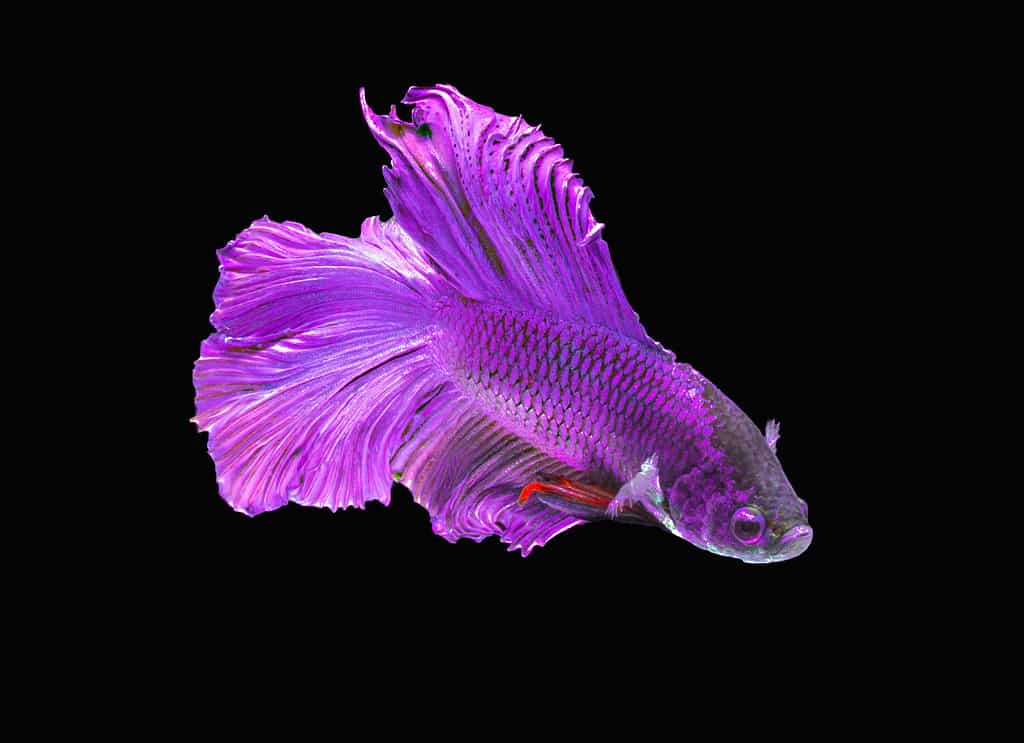
The purple half-moon betta fish has striking colorful fins that owners love to watch swim.
©GracePhotos/Shutterstock.com
Avoid vertical death hang by ensuring your betta fish has a well-maintained aquarium and balanced diet. The moment you sense something off on your betta fish, take them to a vet or consult over the phone for the best course of action. Early detection and treatment can make or break how easily your betta fish jumps back to full health.
Thank you for reading! Have some feedback for us? Contact the AZ Animals editorial team.

